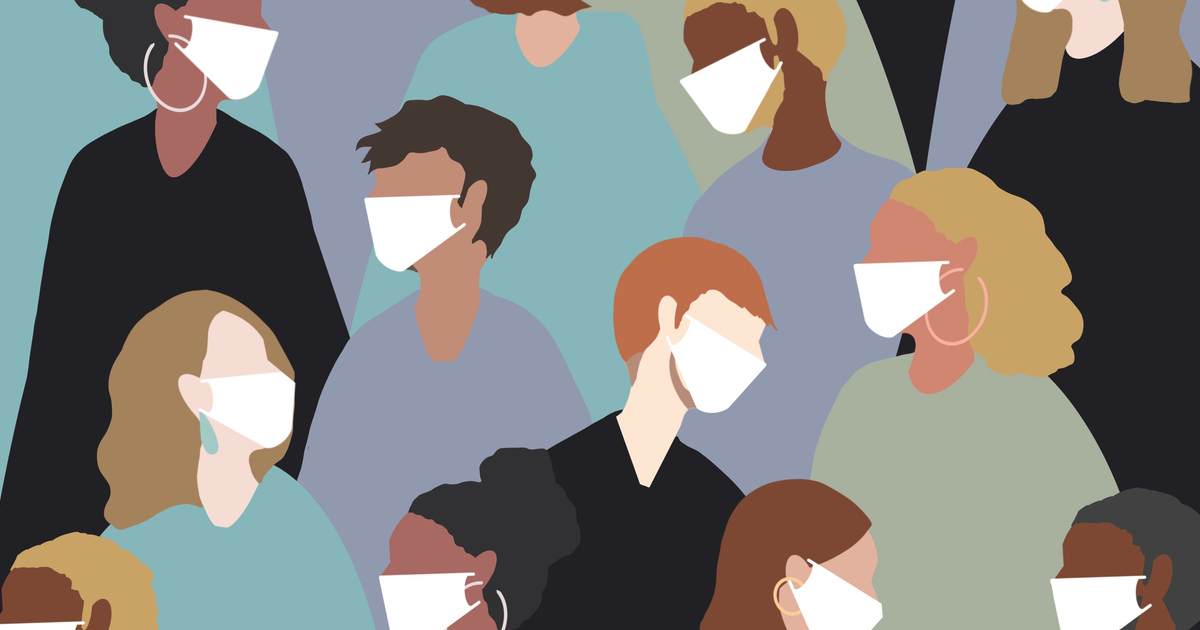A lot has changed since the beginning of 2020. Covid-19 impacted so many areas of life- work, social interactions and even our intimate lives. There has been a pronounced effect on sexually transmitted diseases (STDs) and the way in which people engage in the prevention and diagnosis of those.
Have STDs Slowed Down Due to Social Distancing?
Some degree of social distancing has been introduced throughout the world. Needless to say, most people assume that lock-downs and quarantines have contributed to a slowdown in the rate of STD transmission.
A recent study published in the Journal of the European Academy of Dermatology and Venereology suggests this may not be the case.
The study took place in Italy – one of the European countries hit the hardest by Covid-19. In an attempt to slow down the spread of the disease, Italian authorities introduced strict measures and prolonged lock-downs in many parts of the country.
An STD clinic located in one of the most severely affected Italian areas reported nine new chlamydia cases, two new gonorrhoea infections and four cases of syphilis during the lock-down lasting from March 9 to May 4. In the same period of 2019, the clinic had diagnosed 17 STI infections, which means that the incidence rate is comparable.
Findings from other parts of the world paint a similar picture. While social distancing should be keeping people from engaging in risky behaviours like casual sex outside of a monogamous relationship, this is not the case.
STD Testing Challenges During Covid-19 Lock-downs
Another key way in which the corona-virus pandemic has affected the prevention, diagnosis and treatment of STDs is by making such services less readily available.
Across the US, the number of people getting tested for sexually transmitted infections has reached an all-time low since the beginning of 2020. Numerous clinics offering such options (either for free or a minimal payment) have had to shut down as a part of Covid-19 preventative protocols. This shutting down is occurring at a time when the rates of various types of sexually transmitted infections are steadily going up.
There has also been a relocation of public health resources towards the prevention and the treatment of Covid-19. Such shifts have had many worried that funding would not be available in adequate amounts for affordable testing and treatment of STDs.
Throughout the US, clinics have reported that they have had to reduce or suspend the provision of services pertaining to the diagnosis and treatment of STDs like HIV, syphilis and chlamydia. As a result of these reductions, some jurisdictions have observed the cluster-like spread of these infections.
While it’s still too early to tell whether the impact is going to be widespread, chances are that similar scenarios will play out in many other parts of the world.
The Other Side of the Coin
In some countries, however, the situation has taken a turn for the positive.
Canada recently reported a significant reduction in the number of newly-diagnosed STDs. The most significant decline in Ontario, for example, occurred between March and April. At the time, a country-wide stay-at-home order was issued to slow down the spread of the corona-virus.
In January 2020, Ontario had 4,865 new cases of chlamydia. In April, the number of new diagnoses was only 1,223. A similar decrease has been noted for most other STIs, taking in consideration the fact that rates of infection on a monthly basis remained steady over the course of 2019.
It’s still not clear, however, if the drop resulted from social distancing or from the fact that fewer people are getting tested right now. Just like in the US, people have had limited access to such services – a fact that may account for the sensible drop.
The Situation in Singapore
There are still no studies or figures pertaining to the effect of Covid-19 on STD rates and the availability of testing services in Singapore.
During the Circuit Breaker period, STD testing and the treatment of such infections were ranked among essential services that remained ongoing. Still, many people chose to stay at home and postpone getting tested for the future.
Currently, sexual health clinics are fully-operational.
The Circuit Breaker exit was initiated on June 1 and return to normal life was announced in three stages. The official end of the period marked the resumption of various healthcare services like outpatient treatments, community-based services, chronic disease management and adult vaccinations.
If you still have concerns about visiting a clinic while the corona-virus pandemic is ongoing, you may want to get in touch with the facility remotely first.
Shim Clinic’s team is here to assist you and guide you through whatever you’re dealing with. You can give us a call to schedule a visit to the clinic at a time that’s convenient for you. Thinking about doing a STD test for the first time? Here is a guide.
In addition, you can get phone assistance and answers to some of the most pressing questions about STDs. Depending on the nature of your inquiry and the specifics of the situation, we’d be capable of recommending a tailored course of action that will address your needs.
Taking care of your sexual health is still a key responsibility you should not neglect due to the new reality that we’re living in. Protecting yourself and your partners does entail getting tested regularly. Since such services are once again readily available, you have no excuse to omit screening.

